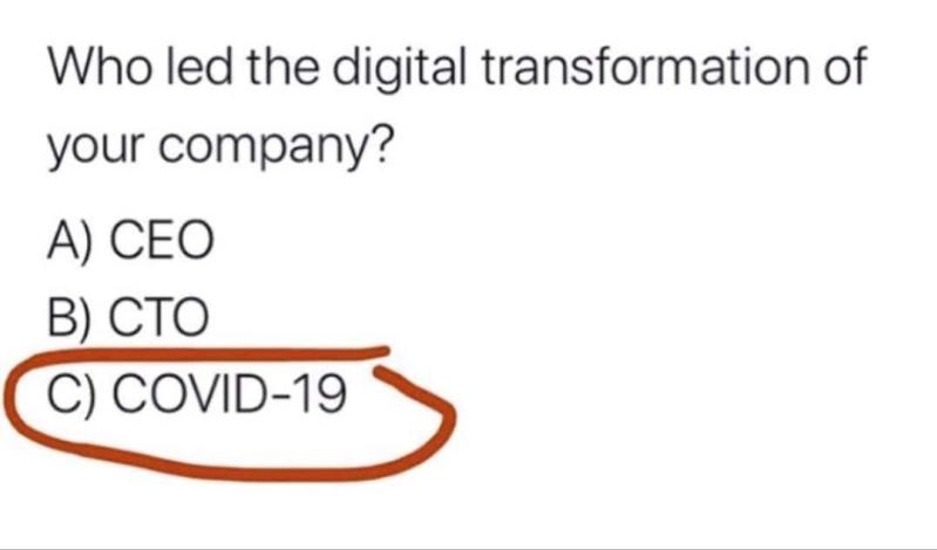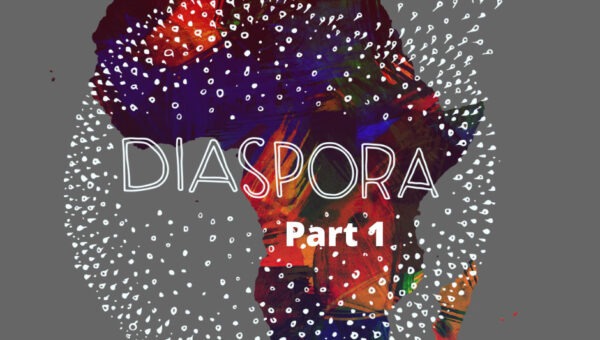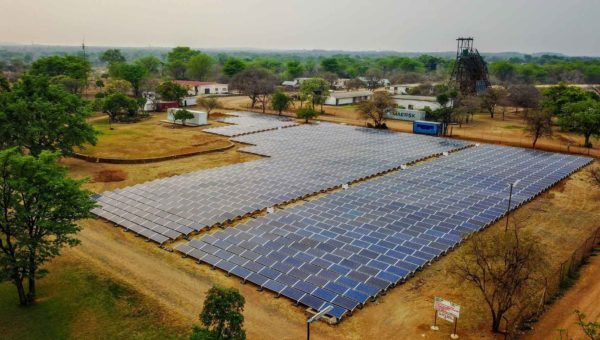The noose of contradictory injunctions and double constraint
Covi is a technician in a West African telecom company, subsidiary of a large group.
With this health crisis, his employer has aligned its preventive measures with those of the group, recently implemented at the European headquarters, where the pandemic is a few weeks ahead of schedule. Covi is being sensitized in his workplace, bombarded with messages, and reads all sorts of signs everywhere in his workplace. He has his temperature taken when entering and leaving the company; he has to keep a permanent distance of 1m50 from his colleagues and wash his hands at least twice when he goes to the office, now every other day and in half a day.
At 12.30 pm, Covi returns home by motorcycle taxi.
He is in his thoughts when he pushes the gate of the concession in which he lives in a 30m2 “Entré-couché” (2) with his wife, his three children, and his sick mother-in-law, on the outskirts of the city. He shares the same courtyard with five other families.
Today is market day. At this time, Awa, his wife, will soon be back from the market where she will have spent a good 2 hours talking with lots of traders, touching their products to make sure of their quality, shaking hands. Covi is tired in advance at the thought of repeating to her that all this must be avoided. On top of that, tonight they must go and pay their respects in a funeral home, to “relatives and allies”! He won’t cut it. He reassures himself that they will be back before the curfew that has just been imposed.
If he sticks to what he is being serenaded all day long at the office, it is evident that the hand-to-hand contact he has just had with this motorcycle taxi is not advisable. Mainly since the said motorcycle taxi literally spoke to him in his nose for 20 minutes, and that he will probably have transported a dozen people this morning without taking the most basic precautions. He is told at work that this “Corona” story is really not to be taken lightly, but he can see that his country has not taken the strict confinement measures that television describes in France and Italy, where his cousins live. He is lost. He no longer knows what to do.
Contradictory injunction…
He wishes he could be in the head of the President of the Republic!
A few dozen kilometers away, the President of the Republic left the crisis meeting, during which experts urged him to speed up the adoption of total containment measures. “These experts truly do not understand anything about the situation and conditions in our country!” he swears. “Can they not see that I am sitting between two burning chairs?
If I entirely confine the population, they are not among that 80 % of people that we would surely starve to death. This population lives on informal work, often daily, and has to go out every day to find enough to pay for the next day’s food, so it won’t be long before they start protesting out in the streets! That is the last thing we need right now.
But if the pandemic spreads along the same lines as in Europe, our already inadequate health systems will not be able to do much,” he says. He went over his experts’ figures again and again: 7 to 9% of declared cases will be severe cases requiring health infrastructures to take care of respiratory distress for at least two weeks? It is potentially tens of thousands of deaths that we have to prepare for! Perhaps the structure of the population of our very young country will attenuate the announced hecatomb? Maybe additional measures such as partial confinement by regional clusters will make it possible to limit the damage while waiting for more convincing clinical results on the two currently identified avenues of treatment?
Perhaps they will. Maybe not…Especially since it seems that the proportion of under-60s severely affected by the virus has increased since its appearance in China and that at the African regional level, population movements are much higher than in Europe…
Like his African peers, he senses a bad wind coming, and keeps asking the question: what can we do?
Double constraint.
A double constraint is a situation in which a person is subject to 2 pressures. A double constraint is a situation in which a person is subject to two contradictory or incompatible pressures. The best-known form of double constraint is the contradictory injunction, which in psychology is akin to a “contradictory command.” Contradictory injunctions, also known as paradoxical injunctions, are those that cannot be obeyed without disobeying. Hence the term “double constraint” or “double knot,” theorized by Gregory Bateson. It confronts the individual with the certainty of being a loser, regardless of the choice he or she makes: reacting with a partial response to each of the two injunctions or taking refuge in tetany by not responding to any of the constraints.
Typically, the measures for setting up containment AND continuing economic activity are of the order of double, contradictory injunctions, complex at best in their implementation, incomprehensible at worst…
Liability, an antidote to paradoxical injunction
Almost all of the 11 HRDs, General Counsel and General Secretary of regional groups and subsidiaries of multinationals in sub-Saharan Africa I questioned before drafting this article (1), praise the speed, vigor, and relevance of the adjustments of the majority of governments in sub-Saharan African countries where they work. They all say that governments’ communication and information is useful. Daily updates on the situation are now the norm. This must be recognized. Those of them who had been involved for weeks with teams in their European, Middle Eastern, or Asian headquarters where the epidemic had “matured,” however, note that this adaptation is very recent. We had an advance on which we did not capitalize sufficiently.
In reality, it was indeed difficult not to react: WHO projections had already indicated for some time that the epicenter of the pandemic would slide rapidly and massively towards Africa. After some prevarication, with the notable exception of Morocco, which took action very early on, governments perceived the seriousness of the situation and seemed to be in battle order.
It is here that a second percentage speaks for itself: a little less than half of the people questioned believe that the situation will deteriorate rapidly. They also think that although governments’ reaction has been vigorous (information, budget release, etc.), the decisions and measures taken lack an operational relay. There should be a broader association of opinion leaders, NGOs, and the “empowerment” of local governments in controlling all these social constants, which are part of our customs and habits and which could be vectors for the explosion of contagion. I am talking, for example, about the exemplary severity required against such and such official or member of government who, infected with the coronavirus, is photographed with a large group of people who came to visit him.
This lack of operational relay also worries businesses.
One of my interlocutors indicated (he was the only one, but I take this idea on board, as I share it) that he thought that governments had covered up, but had not fully assumed their responsibility.
He continued: “Responsibility is also the ability to give an answer or to make people capable of giving a relevant answer. I mean, when you’re a leader, being responsible means making sure that what you ask for is possible and reasonably feasible. If that is not the case, you have to look for another way of doing things, one that is more effective and less dangerous. Similarly, when you receive orders, being responsible means making sure that you can do what is asked of you. The how and the means are at least as important as the direction. »
The point is not to ask to take a definitive and public stand for one or the other option. The introductory narrative shows the dilemma in which the leader in Africa finds himself. Here, even more than elsewhere, there is no simple solution!
However, if I only consider the preventive measures and framework documents produced by most governments for businesses, specifically for formal Small and Medium Enterprises, and the fragile economic sectors of our countries, the full responsibility would have been, for example, to set up permanent operational units to support these destitute and isolated SMEs. For the vast majority of them, the implementation of these “macro” guidelines is a dramatic reality.
Several HRDs told me that governments had not imposed any particular and specific measures on employers provided that the injunction to stay at home as much as possible is applicable to everyone). Each company is putting in place its response to the current situation, in the context of a state of emergency with curfews in several of the countries they cover.
The responsibility is a double-take stick, as this other HRD told me. If the authorities and governments do what they can, what these interviews and questionnaires administered showed me is that individuals have proved to be extraordinary relays of solidarity in the business world.
COVID-19 and HR solidarity
By taking the decision to question only HR directors and senior managers with a regional positioning within multinationals or large groups, I thought that this would be the best way to get a higher-level view since their responsibilities cover between 3 and 15 countries, where the subsidiaries making up the scope of their functions are located.
| Most frequently cited internal measures | Number | |
| 1 | Intensive internal awareness campaign (mailing, audiovisual, awareness-raising …) | 11/12 |
| 2 | Cancellation or postponement of physical meetings and/or non-essential travel and workplace distancing | 10/12 |
| 3 | Daily supply of liquid soap or hydro-alcoholic gel to all staff in the workplace | 9/12 |
| 4 | Systematic temperature measurement at the entrance (employees and service providers) | 5/12 |
| 5 | Partial homeworking | 4/12 |
| 6 | Total or near-total homeworking | 1/12 |
| Most frequently cited accompanying measures | Number | |
| 1 | Advance payment of salaries (e.g., anticipating staff needs for food supplies) | 9/12 |
| 2 | Provision of home internet connections for the strategic positions of the company | 7/12 |
| 3 | Increase in the monthly mobile phone and data packages for all staff members | 4/12 |
| 4 | Donation of hygiene products (in liquid soap or hydro-alcoholic gel) to employees, individuals/employees’ households | 3/12 |
| 5 | Provision of a (monetary) prevention package for specific categories of employees | 1/12 |
Noting that these companies had quickly and effectively put in place measures inspired by their group procedures, my interest was quite spontaneously drawn to the distress in which the vast majority of their colleagues working in local companies and SMEs found themselves. Almost all of them showed me the touching solidarity that quickly developed to help their colleagues.
I want to quote this HR Director of a company in the energy sector in Ghana.
Overwhelmed by her work and by the requests of her local HR colleagues from other companies, she took the initiative on her personal time to launch a WhatsApp group in which she provides information and documentation.
She punctuates it with regular “conference calls” to answer specific questions related to the tools and information available.
The advice she most frequently gives is to anticipate right now what is likely to happen when the country goes through the hard times of the pandemic, and that they will necessarily be forced to stop traveling. They will need to work with their senior management NOW to identify priority activities, and set up mechanisms to allocate resources to them and keep the company running on the essentials, especially in the service companies that will be most affected. A sort of Business Continuity Plan at the very least.
She also mentioned, as well as several others, this audiovisual conferencing tool, Zoom, which works very well in a free basic version and consumes little bandwidth. I didn’t know about it. I tried it on that occasion. Approved!
The HR directors I interviewed in Senegal told me about the “Hacking HR” network, which had taken several initiatives and had been a helping hand to many local HR directors lost in this crisis.
Hacking HR’s mission is to reposition HR as a strategic function in organizations and create synergies by taking advantage of the technological and digital transformation, opportunities for dematerialization and the repositioning of soft skills, to put the human at the center. It is a network that supports free learning and has many online resources to do so. It is open to anyone who shares this perception of the central role of a repositioned HR function.
https://hackinghr.io/
Rokhaya Ndiaye, who opened the “Dakar Chapter,” is soon to open the Chapters of 2 other West African cities, including Abidjan.
Present in 85 cities, the objective of Hacking HR for the year 2020 is to be present in all major cities of the world. Among the modes of action of the Hacking HR network, webinars.
Noting the dismay of many CEOs and HR managers in Senegal, over-solicited about the management of the COVID-19 crisis in companies, it organized a webinar entitled “Contribution of the Hacking HR network, Dakar Chapter, to the COVID-19 crisis”.
Result: more than 100 participants over two days and resources who spontaneously volunteered as guest-speakers: HRDs, doctors, top leaders, coaches, psychologists, labor inspectors.
The replays of these two sessions of 23 and 24 March 2020 are available via the links below.
Specialists answer specifically to a lot of practical questions of human resources managers. Many of the interventions and advice are usable in other countries in the region. I invite you to view them and register.
The demand is such that the Senegal Chapter of Hacking HR is planning another webinar with a business plan for April, this time to help more specifically business leaders in the management of this crisis.
The recommendations she makes to the dozens of HR to whom she speaks: “You have the tools now to decide quickly and do what needs to be done. The government has been quite clear, and you can’t expect it to take anyone by the hand. A new situation, a new reaction: HR has to take calculated risks because we have nothing to lose anyway. They have to be creative. I have no doubt that some of them will reveal themselves! »
She notes that one of the challenges of this situation is to make managers understand how the Business Continuity Plan concept aims to protect and maintain the maximum of the company’s resources for after the crisis, and imagine the rebound now. People are not yet able to grasp the situation to change the way they work. If customers are taking a break,” she continues, “it’s not the time for companies to take a break, but it’s time to start creating new processes for tomorrow.
The operational side of the Business Continuity Plan has been invented on the wall for many HR managers, sometimes even in large groups and organizations. They continue to improve the system in real-time daily.
But all is not rosy, moderates Rokhaya Ndiaye. More and more cases of abused employees are being reported to her. Business leaders, driven by fear of the abyss ahead of them, panic, threaten, and force employees to come to the workplace, even though they have not taken any measures to protect them.
Similarly, SMEs are encouraged to work from home. The reality is that outside of large companies (and again!), it is something utterly conceptual! She continues.
COVID-19, revealing talent and opportunities
In photography, the developer is a chemical that multiplies the number of silver Ag atoms by ten thousand to make the image appear. In other words, it makes the latent photographic image visible.
Nearly a third of the people interviewed told me that they had had some pleasant surprises within their teams: team leaders and 2nd level managers, usually discreet or even self-effacing, seem to have molted during this crisis, taking the lead in protecting their teams, taking the news in the occasion of real online discussion trees that did a lot of good for team morale, raising awareness among their colleagues well beyond their teams; getting involved in internal ad hoc crisis committees, etc. And people were following them. To the great surprise of their supervisors sometimes. It was as if there was room for their leadership to reveal itself. “It is obvious that when the crisis is over, the careers of these talents will take a new direction,” confides this other HR Director.
As far as organizational terms or ways of working are concerned, a few of those interviewed venture to learn from the situation because they are still in a state of emergency. Many are aware that the crisis has not even reached its climax. 11/12 say they are confident that the crisis will have a profound impact on the way they work. If only because forced to do otherwise, it has been demonstrated that it works.
For example, there is no more air travel to the other side of the continent for a one-day meeting.
Working from home, which was struggling to be implemented in Africa, will be putting its foot in the door.
Some specific digitization files had also been dragging on for months. The change of tools and working methods seemed to be possible only by forceps.
“All of a sudden, poof, the digitization of the HR function that I was managing on my cluster (performance, salary, and payroll, a development plan for the year, online training, etc.) was incredibly accelerated,” confides this regional HR director within a pharmaceutical group.

Even national authorities and administrations, very fond of stamps and signatures, seem to have moved, by force. The situation finally sheds light on the incongruity of certain local practices.
But the real challenge will be to install these changes in a sustainable way long after the crisis.
—-
A third of the people I interviewed told me personally that they were convinced that confinement is not the most effective modality for fighting in our African contexts. They invariably said that Africa does not have the means to implement the other most productive strategies and modalities, such as generalization of screening to the whole territory; isolation for treatment of the most affected in heavily equipped centers to treat respiratory failure in severely affected patients for at least 14 days.
“So we have to stop procrastinating and act with what we have and try to anticipate. Period! And what we have is prevention and degrees of social distancing.
Professor Denis Mukwenge, Nobel Peace Prize winner, says the same thing in his interview in yesterday’s Le Monde: “To avoid hecatomb in Africa, we must act as quickly as possible. We have only one option: prevention, prevention, prevention!”
Especially since those who will pay the most substantial price for this cursed COVID-19, are not the wealthy urban populations, globalized, or large groups. It is the poor and the SME/VSMEs that make up the bulk of Africa’s economic structure. It is fascinating to see how in South-East Asia, the Philippines, in particular, and more recently in Africa, we are witnessing large-scale food distribution organized by wealthy families and large fortunes. Members of several governments “generously” contribute all or part of their monthly wages to solidarity funds.
If you don’t see this as a sign that things are heating up, then I can’t help you anymore!”
Some HR Directors also told me that they perceived this situation as a moment of truth “the moment or never to manifest their corporate culture and the reality of the values/type of leadership advocated internally.” Others encouraged, in the same vein, their companies to do more than expected, as the corporate citizen they wish to be. The COVID-19 crisis, in more ways than one, will make it possible to “say who’s who,” and many masks are in danger of falling off.
I want to sincerely thank Eric Tagnon, who provided me with a lot of background information from his perspective as a Cluster HRD within WHO in an emerging region. At the end of the interview, he told me that if he had a testimony to share with his HR colleagues, it would be his own experience during this crisis of the primordial importance of thinking about people and demonstrating it to them. ” Starting a short meeting where we don’t talk about work but where we take news and exchange makes all the difference. Otherwise, you lose your teams! It’s time to remember the meaning of the “H” in “HR” for those who had forgotten it,” he says.
Thank you all again. It is thanks to all the HRDs and SGs I interviewed, and to the resources, they gave me access to that I have produced this synthesis of COVID-19 good practices in companies (2). You will be able to download the document via this form.
———–
(1) I wrote this article thanks to interviews and questionnaires in which 11 HRDs and 1 General Counsel and General Secretary of regional groups and subsidiaries of multinationals in sub-Saharan Africa spontaneously agreed to participate. They come from the following sectors: telecommunications, pharmaceuticals, energy, fintech, agri-food, in regional functions and based in Senegal, Benin, Togo Côte d’Ivoire, Kenya, Ghana.
I would like to thank them once again for their availability in these difficult times, motivated by their willingness to share.
This article does not pretend to be a study, and is probably not representative of the whole reality of the African continent! On the occasion of my collection of incomplete information, I simply had the privilege of being able to take the pulse of a situation, a partial cliché, which I wished to be able to restitute so that it could be useful.
(2) “Entré-couché”: A type of accommodation similar to a small studio apartment, on the ground floor, in West Africa, Benin, and Togo, in particular, where a whole family can live.
(3) This guide is primarily based on several documents, including a good paper produced by the Senegalese government (Milieu de travail and COVID-19), which we have taken up and supplemented with feedback from 11 HRDs and 1 Legal Director and Secretary of regional groups and subsidiaries of multinationals in sub-Saharan Africa. It is an excellent reference for both employers and employees. I hope that these contributions will help more HR managers in Africa to cope with this pandemic and to better protect the employees of their companies and their loved ones.





